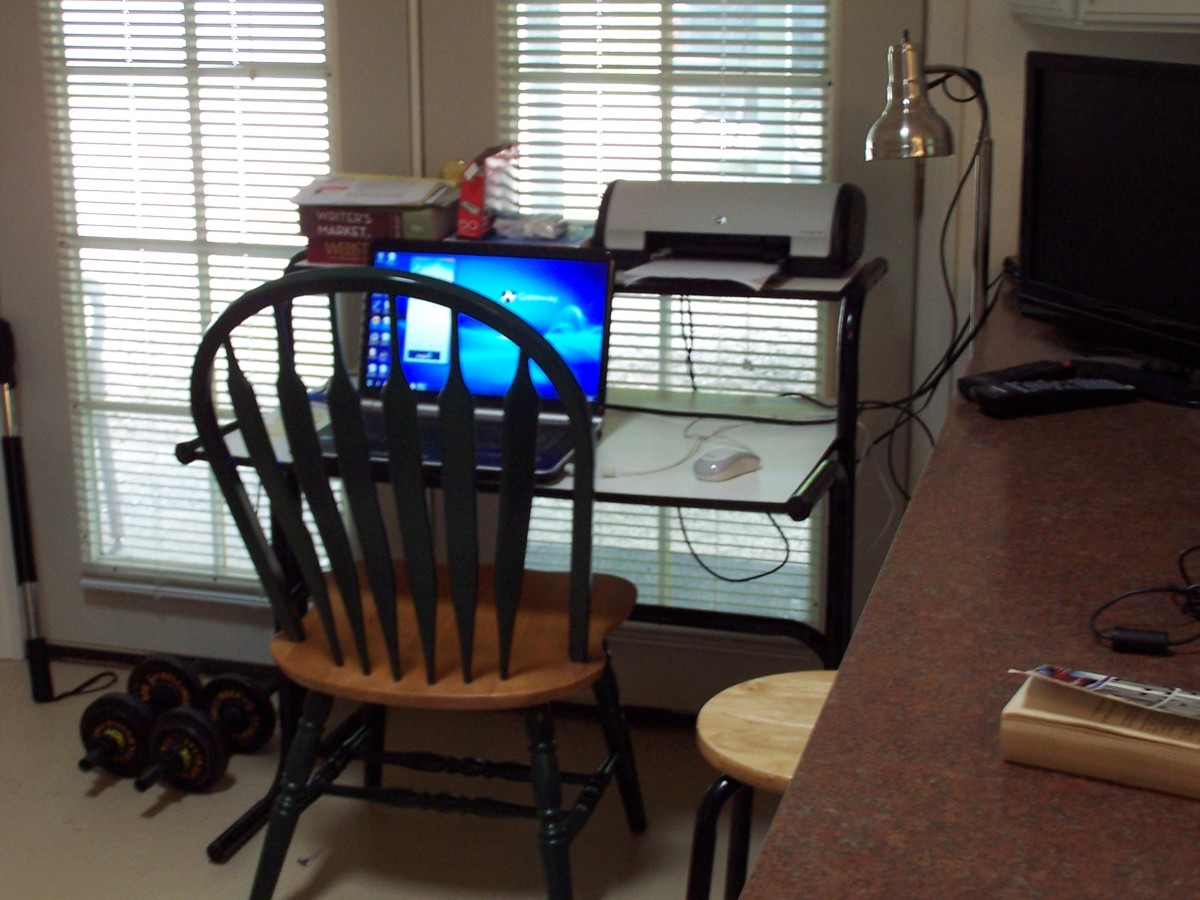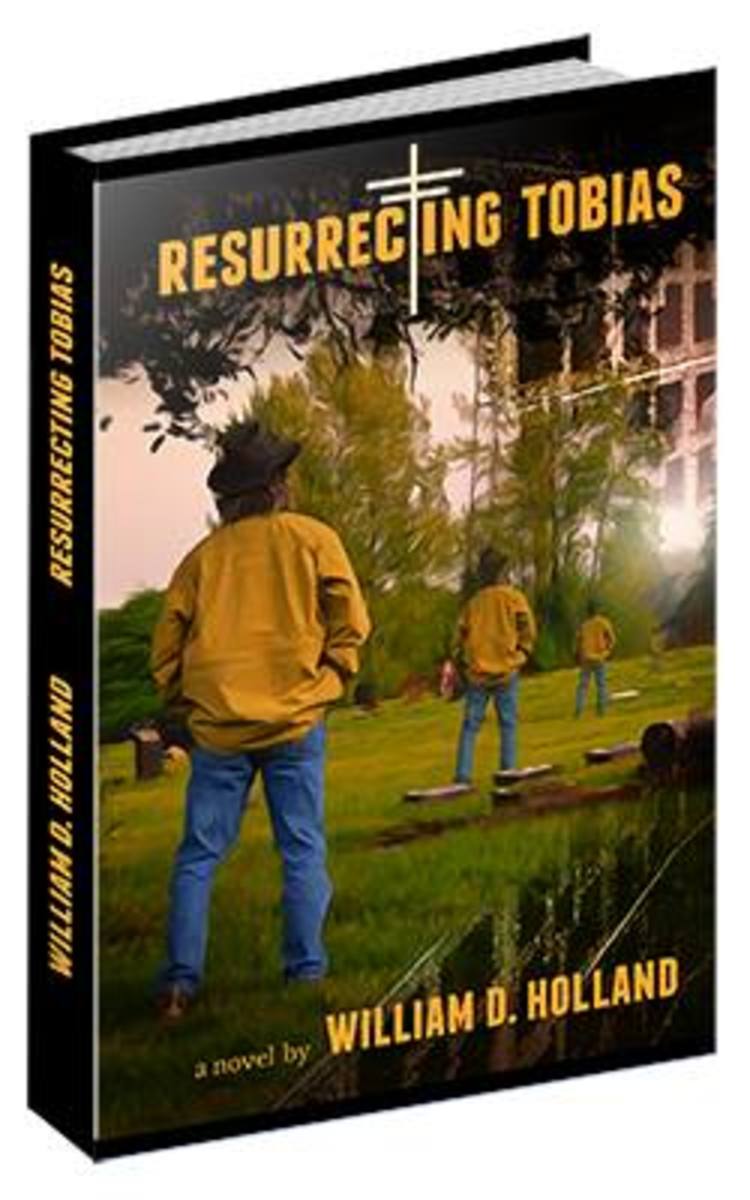The Writer's Mailbag: Installment Four
Welcome Back My Friends, to the Show That Never Ends
Well, to be precise, it will end when I’m pushing up daisies, but they will have to pry my computer from my cold, dead fingers. Thank you, Charlton Heston, for inspiring that line, and that will probably be the last time I ever use Heston as in inspiration for anything.
Welcome back indeed. This new series has met with resounding success, so we shall continue. Resounding success? There are at least ten people who have expressed interest, and our three dogs wagged their tails, so yes, I consider that resounding.
This is the series where you ask the questions and our own resident writing guru answers to the best of his ability. Call it an interactive series if you will. Call it an excuse to write an article if you will. And you can call me Johnson, or you can call me Ray, or you can call me J, or you…..
Enough silliness…..shall we begin with the questions?
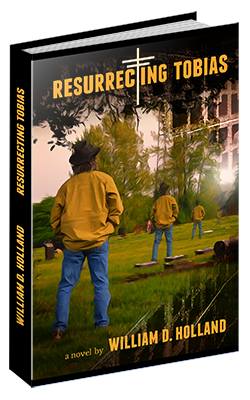
WHO IS THE PUBLISHER WHEN YOU SELF-PUBLISH?
This is almost a trick question, but not quite. It really is a matter of definition. Let’s first look at what it means to self-publish:
“Self-publishing is the publication of any book or other media by the author of the work, without the involvement of an established third-party publisher.”
By definition, then, the author is actually the publisher. I know, I know, some of you are saying, “But wait a minute! If we publish on Lulu or CreateSpace, aren’t they the publishing company?” And here is where it gets tricky.
According to the definition, if you do not publish through a third-party publisher, then you are the publisher. Sites like Lulu are just facilitators in the process, but because you, the writer, make all the decision regarding cover, creative content, editing, etc, you are still the publisher.
From personal experience, I can tell you that every single time I have done an ebook, I have put my company, Mutare Enterprises, down as the publishing company, and I have yet to face any problems doing that.
HOW EASY IS IT TO START A WRITING BUSINESS?
Very, very easy as a matter of fact.
I’m a big believer in any freelance writer starting a business. It not only gives your platform a professional face, but it also gives you tax benefits.
To start a writing business, get yourself a business license. The requirements for a business license will change depending on where you live, but for my particular area, it costs $75 and requires filling out a couple forms. That’s it!
Once that has been done, I go to Vista Print and have business cards made up with my business name, and then I am in business. This might seem insignificant, but I don’t believe it is at all. If you want to be taken seriously as a professional writer, then you need to act like a professional. Having your own writing business yells to the world that you should be taken seriously.
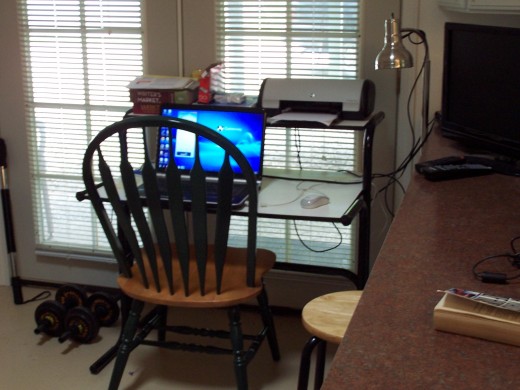
HOW MANY WORDS SHOULD MY NOVEL BE?
There is no concrete answer for this question. There is an unwritten rule that novels should be between 60,000 and 100,000 words, but that is not set in stone. Anyone who has read a novel by James Michener understands that fact.
From a publishing standpoint, most traditional publishers look for books under 120,000 words, but again, and this is an important “but,” quality writing will gain attention no matter how long that quality writing is, so worry about quality and don’t worry about length. Never cut off your novel simply because of a word count. Conversely, never drag your novel out, simply because of a word count. Write the novel the way it needs to be written, and concentrate on making it the best it can be.
ARE WRITING GROUPS HELPFUL?
Do you think that critique writing groups, like the Olympia Writers Group that meets semi-monthly at Barnes & Noble, are helpful?
This question is from my good friend Brian, and the answer is a resounding YES! I am a big believer in writing groups of any kind. They are invaluable when it comes to honest critiques and suggestions.
Writers have a tendency to live in a bubble. We sit down at our computers and we type. We do not seek interaction during the process, but it is interaction that we need in order to produce our best work. I would add that it is quality interaction that we desperately need. Asking our family members for feedback is nice, but we really need feedback from other professional writers.
GRAMMATICAL RULES IN DIALOGUE
Do grammatical rules apply when writing dialogue in a novel?
This is a great question, and I’m sure it is one many of you have asked yourselves.
As a general rule, your characters should imitate real life. Having said that, the dialogue in a work of fiction should be consistent with the speech patterns of the individual characters. It is a tool we have for conveying their personalities, and it is an important tool.
Let me give you a great example from “To Kill A Mockingbird,” by Harper Lee.
“You can choose your friends but you sho' can't choose your family, an' they're still kin to you no matter whether you acknowledge 'em or not, and it makes you look right silly when you don't.”
There is no way we can call that piece of dialogue grammatically correct, but it works perfectly for the situation and for that character. As writers, we want our characters to be individuals, and not all sound the same. I’m not suggesting that we break grammatical rules simply because it is fun to do so, but I am saying that breaking those rules is crucial, at times, in order for our characters to sound real.
QUOTATION MARKS FOR MULTIPLE PARAGRAPHS
When a character’s speech runs into multiple paragraphs, should each paragraph begin and end with quotation marks?
Well, I just ran into this while editing my latest novel, Resurrecting Tobias, and quite honestly I did not know the answer. I do now.
I can tell you what is the standard approach to this, and I’ve confirmed it by reading three novels since I did research on this topic. When a character’s speech carries beyond one paragraph, there should be quotation marks at the beginning of the speech and at the end, and all other paragraphs are open.
This is done to avoid confusing the reader. A closing quotation mark at the end of one paragraph may signal, to the reader, that the next paragraph consists of a different character’s speech.
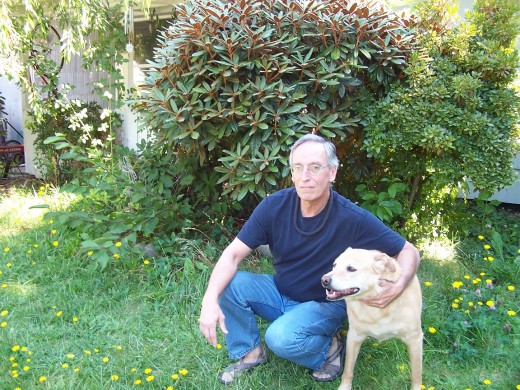
WHY SHOULD WE AVOID CLICHES? EVERYONE USES THEM, SO WHAT’S WRONG WITH USING THEM IN A NOVEL?
It’s a valid point. There is no doubt that our everyday speech is filled with clichés. I know from personal experience that I can’t get through a day without saying one, or two, or ten cliches, so why shouldn’t I use them when writing?
What I am about to tell you is just my opinion, but I have heard writing coaches say the same thing, so I know I’m not alone in this opinion. When writing a book, or for that matter a short story, we should strive for fresh and original language. We should strive to find our own way of expressing a thought. In other words, we should reject lazy and convenient, and shoot for original and unique.
There is no rule regarding this, and it is always your choice, as a writer, to use clichés or not, but from my viewpoint, writing a book should be an exercise in individuality. Instead of using over-used clichés, why not coin a phrase that others will want to use?
Join me on my writing website
- William Holland | Helping Writers to Spread Their Wings and Fly
Tips and discussions about writing
Do you find this series helpful?
And That’s All for This Installment
I hope you found that helpful. Remember, if you have a question for the Mailbag, simply send me an email at holland1145@yahoo.com, ask your question in the comment section below, or ask me a question on my website at www.williamdhollandauthor.com. I’ll answer them in the next installment.
Thanks for following along. Now sit down and write your heart out.
2014 William D. Holland (aka billybuc)
“Helping writers to spread their wings and fly.”




